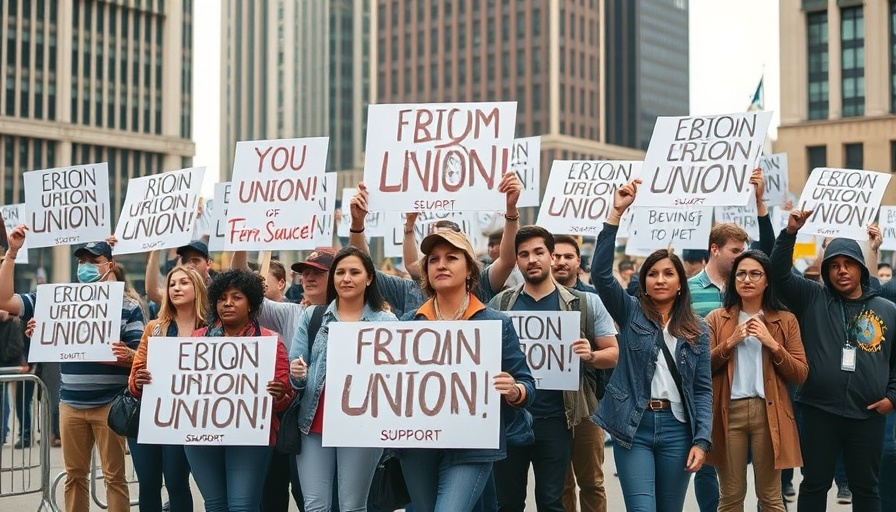
The Impact of Trump's Executive Orders on Federal Workers
In a significant move that affects over 445,000 federal employees, President Trump’s recent executive orders have stripped numerous workers of their union protections. This bold directive has generated uproar among labor advocates and union leaders, who argue that the actions constitute a historic level of union busting in the United States.
As the president's administration justifies the measures under the guise of national security, many counter that the implications extend far beyond what is warranted. Agencies such as the Environmental Protection Agency and the Department of Veterans Affairs saw substantial changes, with workers losing contract protections that govern their workplace conditions and rights.
Historical Context: Labor Rights in America
The genesis of labor rights in the U.S. can be traced back to the early 20th century, where workers began mobilizing for better working conditions, wages, and job security. The establishment of unions played a pivotal role in championing these rights, leading to key legislative protections over the years. However, President Trump's recent actions signal a potential regression in these hard-won labor rights and raise questions about the future of union representation in government workplaces.
Many recall the turbulent history of labor relations in the U.S., with pivotal movements like the Teamsters and the United Auto Workers shaping the landscape. These unions not only fought for their members but also laid the groundwork for the labor protections that many take for granted today.
Counterarguments: Justifying Union Stripping
Supporters of Trump’s orders argue that the current climate necessitates a reevaluation of union roles, especially in sectors tied to national security. They contend that collective bargaining may hinder the swift implementation of policies crucial for national interests, especially during emergencies or military operations. The president cited the Department of Veterans Affairs as essential in providing timely care for wounded service members, indicating that robust labor contracts might delay critical responses.
Moreover, some assert that the vast bureaucracy within the federal workforce could be streamlined, enhancing efficiency. However, this perspective often overlooks the vital role labor unions play in advocating for fair treatment and job security for employees.
The Social Impact: Solidarity versus Individual Zeal
The stripping of union rights begs the question of solidarity among workers. Social connections within unions foster a collective identity that empowers employees to voice their concerns and negotiate better terms. The president's approach threatens to dismantle this sense of community, pushing workers to confront challenges in isolation.
Labor organizations have historically provided not only job security but also emotional support in tough times, making their absence a profound loss for many. In an increasingly fragmented workforce, unity becomes a critical asset, and the curtailing of union powers may leave many feeling vulnerable.
Future Insights: Is Union Representation Fading?
Looking forward, analysts and labor experts speculate on the lasting impacts of these executive orders. If trends continue toward the erosion of union power, the landscape of American labor relations may shift dramatically. With escalating tensions between the federal government and labor organizations, there might be prolonged legal battles that could redefine the rights of workers.
Additionally, as technology evolves and more jobs become automated, the role of labor unions may need to adapt to protect the workforce from exploitation. Future insights suggest that unions may pivot toward advocating for emerging issues such as workplace automation and employee mental health.
Call to Action: Get Informed
The implications of stripping union rights go far beyond the immediate impact on affected workers. It signifies a potential shift in the balance of power between employees and the government. As citizens and workers, it is critical to stay informed and engaged in discussions surrounding labor rights and policies that directly affect workplaces across the country.
Understanding these dynamics can prepare you to advocate for fair labor practices and demand accountability from those in power. Consider participating in local union meetings or labor rights discussions to gain further insight into how these changes might impact you and your community.
 Add Row
Add Row  Add
Add 




Write A Comment